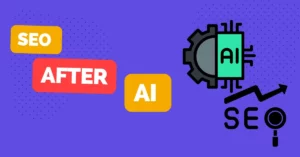The world of SEO can be confusing, with many technical words and algorithms that keep changing. So, when news spread about a revolutionary “Jackyan Algorithm” update for Google SEO in 2024, many website owners rushed to understand what it meant. However, the truth behind this supposed update is much less exciting.
Table of Contents
Where Did This Myth Come From?
The confusion seems to have started from a mistake made by a large language model (LLM) system. These AI systems can process information and generate text, but they are not perfect. In this case, the LLM likely misunderstood something, and some SEO “experts” took advantage of the wrong information.
Jack Yan Clarifies the Truth
Jack Yan is someone who knows a lot about SEO. He became involved in the myth by accident when articles claimed he developed the ‘Jackyan algorithm’ for Google. Thankfully, Jack Yan addressed this on his blog, calling out the misinformation and stressing the importance of using SEO strategies based on real evidence.
Trying Up-to-Date on Real Google SEO Changes
While there may not be a ‘Jackyan algorithm’, Google’s rules for SEO keep evolving. Here are some reliable ways to stay informed about confirmed Google SEO updates:
Google Search Central:
This is the official source for Google’s SEO guidelines and updates. They provide clear explanations and best practices for optimizing websites: https://developers.google.com/search/docs/fundamentals/get-started-developers
Trusted SEO Blogs and Publications:
Well-known SEO blogs and publications will report on real Google updates. Look for websites with a proven track record of providing accurate SEO information and insights from professionals.
Focusing on User Experience and Quality Content
Instead of worrying about mythical algorithm updates, it’s best to focus on core SEO principles that prioritize user experience and quality content. This includes:
Creating Valuable and Informative Content:
Write content that answers users’ search queries and provides genuine value.
Optimizing for Mobile Devices: Ensure your website displays well on all devices, especially mobile phones.
Building Quality Backlinks: Encourage other credible websites to link back to yours, showing your site’s quality.
Improving Page Load Speed: A fast-loading website provides a better user experience and can boost search rankings.
By following these core principles and staying informed through reliable sources, you can navigate the constantly changing world of SEO with confidence. Remember, SEO is a long-term strategy, and focusing on user experience and quality content will always pay off.






Thank you for getting your facts right. I appreciate your extra efforts here.
I’m truly grateful you wrote your post based on fact, to counter the misinformation out there. Thank you.